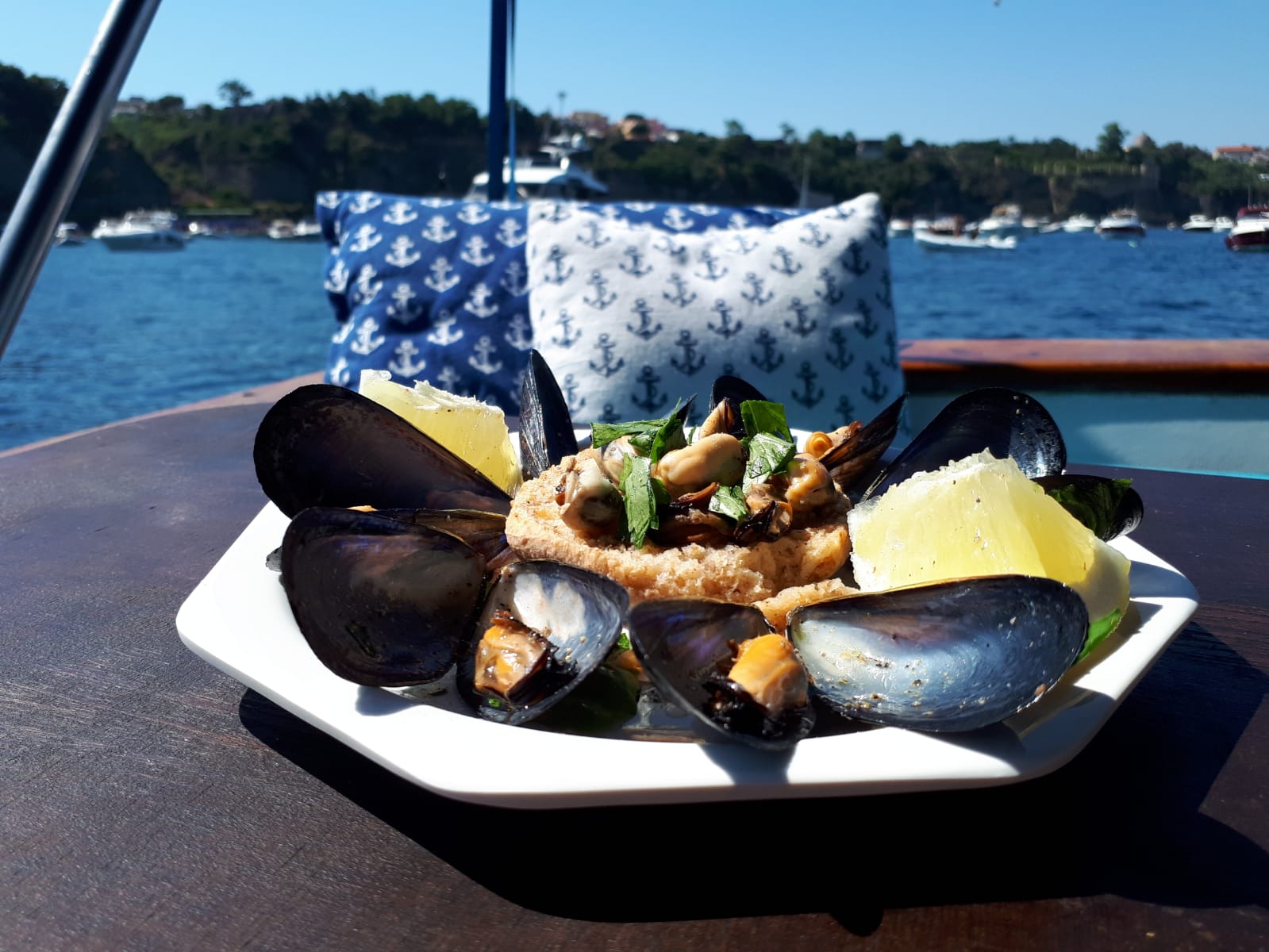Eno-gastronomic excursion of the Phlegrean Fields
Mara Stenico | Posted on |

Bacoli, among other things, is famous for its mussel farming
Today I take you with me on a small eno-gastronomic excursion of the place where I live. I will talk about the Mussels and the most famous wine of the area, the Falanghina.
Bacoli, among other things, is famous for its mussel farming that comes from afar and has been an important driving force for the economy of this town. Although in Italian they are called mitili or muscoli, peoci and other regional names in the north, here in the south they are known as Cozze, or more properly Cozzeca in the Neapolitan language, with the last two mute vowels, the pronunciation is Cozz’c with the c tough.
Already at the time of the hegemony of the ancient Euboean city of Cuma, the mussel was much appreciated and probably bred, so much so that it deserved its representation on the back of a coin. If you come to the Phlegraean Fields, even if for a few days it is a must to taste at least one of the many recipes in which His Majesty the Mussel is present.
The Impepata di Cozze (peppered mussels) is perhaps the most famous, but also cooked au gratin, or as it is used in Naples, on Holy Thursday, in a soup with tomato, basil, and the addition of an octopus and served on a frisella, which is difficult to say what it is, I leave you in curiosity. Of course, they form an unbeatable combination with spaghetti.
Instead, I give you my recipe, baked mussels. Open the mussels preferably raw with the help of a knife and arrange them in a pan, one next to the other, leaving only one valve that holds the seafood. Add parsley, mint, minced garlic, wine vinegar, lemon slices, black pepper, chili pepper and a little water. When you taste them, you will feel like you are making love with your taste buds. The ideal wine to accompany this dish or rather this journey into taste is a Falanghina rigorously Campi Flegrei, served chilled.
Falanghina vines are native to the area and are called with this name because once upon a time, since the times of the Greeks, it was cultivated with long chestnut poles, even 5 or 6 meters high, which resembled the sarissas of Alexander the Great’s Macedonian phalanxes.
Mussels have always had the reputation of being aphrodisiacs and due to their particular shape, they are associated with the female sex. A recommendation if the mussels are produced in our gulf never add salt in any recipe, because the sea in these parts is very salty and you will notice it when you dry in the sun after a bath. Salt will form in small crystals on the skin, almost a snowy whiteness.
Falanghina is a savory wine due to its proximity to the sea, with aromas of peach blossoms, orange blossoms, and much more, a bouquet that I simply define as ‘Scent of Spring’.
Mussels and falanghina, a perfect match, one a symbol of Venus and the other a symbol of Bacchus, what more could you want? A perfect couple, indeed divine!
Written by:
Rino Costigliola
All rights reserved

Leave a Reply